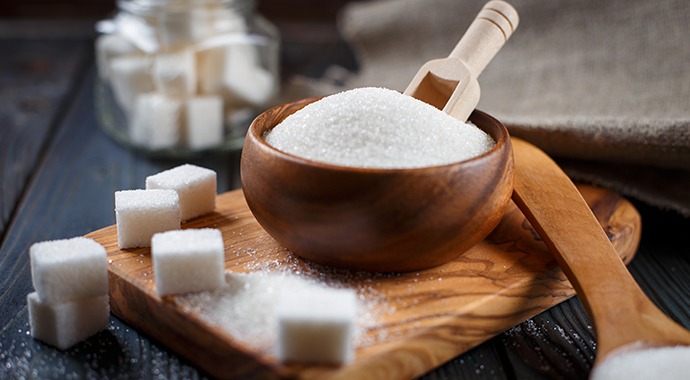The Truth about: Sugar-Free, No Added Sugar, no Refined Sugar and Unsweetened

Nowadays we are seeing more and more labels with “no refined sugar”, “sugar-free”, “no added sugar”, and “unsweetened”, for consumers this can be confusing. Which one is better? Do all these claims mean zero sugar whatsoever?
Sugar-Free
According to the FDA, a food is considered “sugar-free” if it contains less than 0.5 grams of sugar per serving.
Naturally occurring sugars such as those in fruit are not required to appear in ingredient lists.
Refined sugar free does not mean it is sugar free!!! They are fooling you as a consumer, when they add this claim, whereas it still the same sugar content at the end.
No Refined Sugar
This sugar source could come from fruits such as dates, honey, Maple syrup, Agave, brown rice syrup, Molasses etc..
At the end point, it is still sugar and can lead to weight gain, blood sugar problems and an increased risk of heart disease, among other dangerous conditions.
Using fructose (fruit sugar, found in agave as well) is well researched to Cause deposition of fat in the liver, potentially leading to non-alcoholic fatty liver disease
No Added Sugar
The FDA permits the food label to claim “no added sugar” if it “contains no sugars added during manufacturing, including ingredients that contain sugar such as juice or dried fruits.”
As long as sugar isn’t added to the food manually, it can carry this claim. This term is not the same as sugar-free, since naturally occurring sugars, artificial sugars can still be present. Look for this claim on foods such as granola, peanut butter, fruit juice, fruit preserves, and more.
Unsweetened
If you see this term on a food label, it means the product contains no added sugars, artificial sweeteners at all.
But, it doesn’t mean the food is sugar-free, as it may have naturally occurring sugars. Examples of unsweetened food products may include almond milk, coconut milk etc…
To avoid artificial sugars or reduce the amount of added sugar in your diet, unsweetened foods are your best option.
So, which Sugar claim is the best choice?
I encourage reading the full nutrition of any food carrying these claims, and ask yourself it’s the right choice for your dietary needs.
Ingredients like coconut sugar or date sugar in recipes for sweet treats.
Let me tell you one thing:
Sugar is Sugar
There is sugar in cane sugar, raw sugar, and powdered sugar. There is sugar in honey, maple syrup, and agave nectar. There is also sugar in coconut sugar and date sugar.
The difference is there are less bleach and more nutritional value in them!!
Coconut sugar is made from the coconut palm tree’s flower and reduced into syrup, and solidified later.
Coconut sugar is often used in recipes that claim to be healthy.
Although coconut sugar has a slight lower sugar level (4 g/teaspoon to white sugar’s 4.2g), there’s no reason to think coconut sugar is better for you than any other sweetener.
Date sugar is made of granulated dried dates. Since it consists of the whole fruit, date sugar is good for containing the fiber and antioxidants found in dates. Still, the average date contains 4 to 5 g of sugar, so date sugar is still very much a sweetener.
As is the case with coconut sugar, though it might be slightly higher in nutrients than its more common counterparts, date sugar isn’t “healthy.”